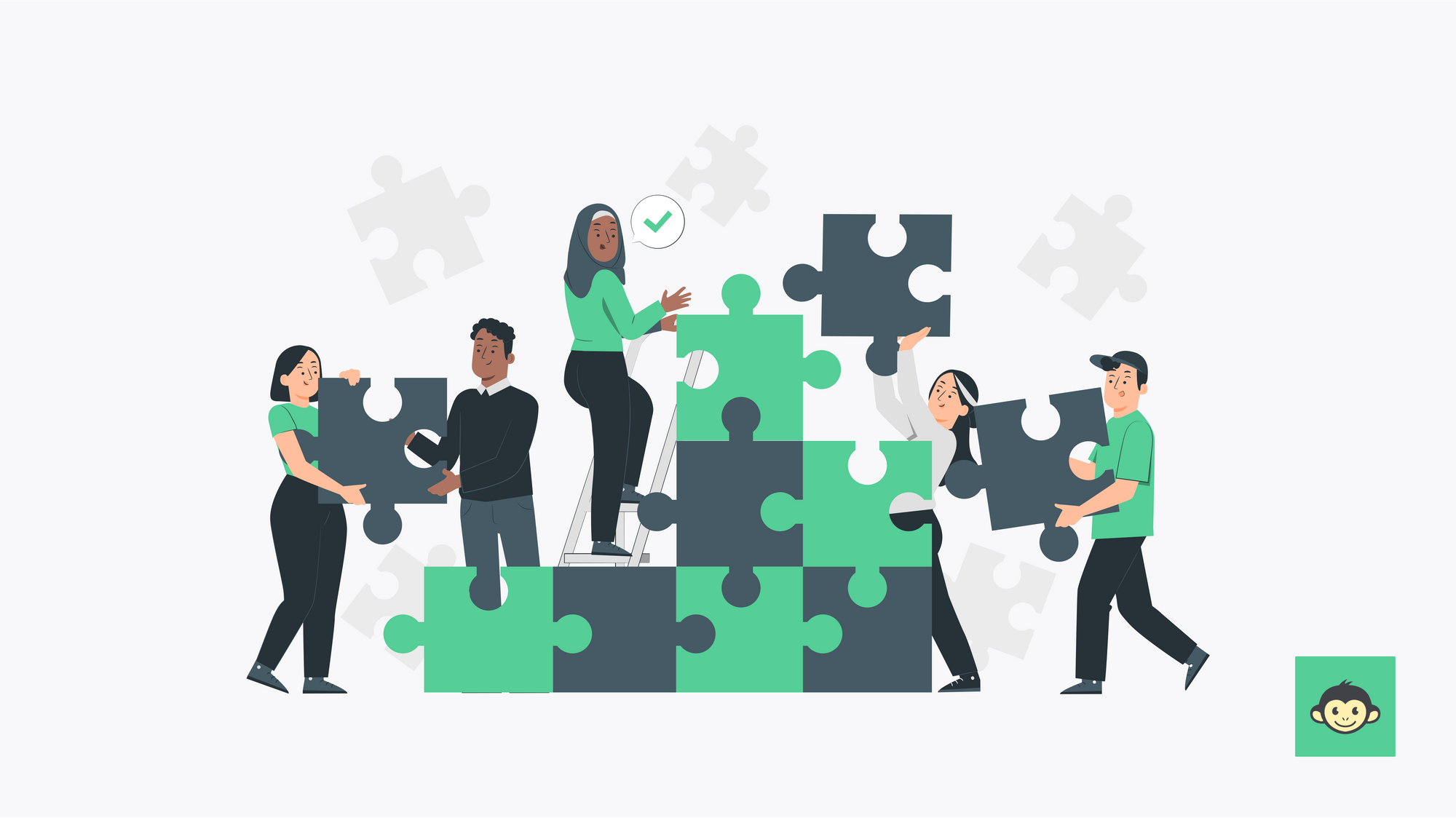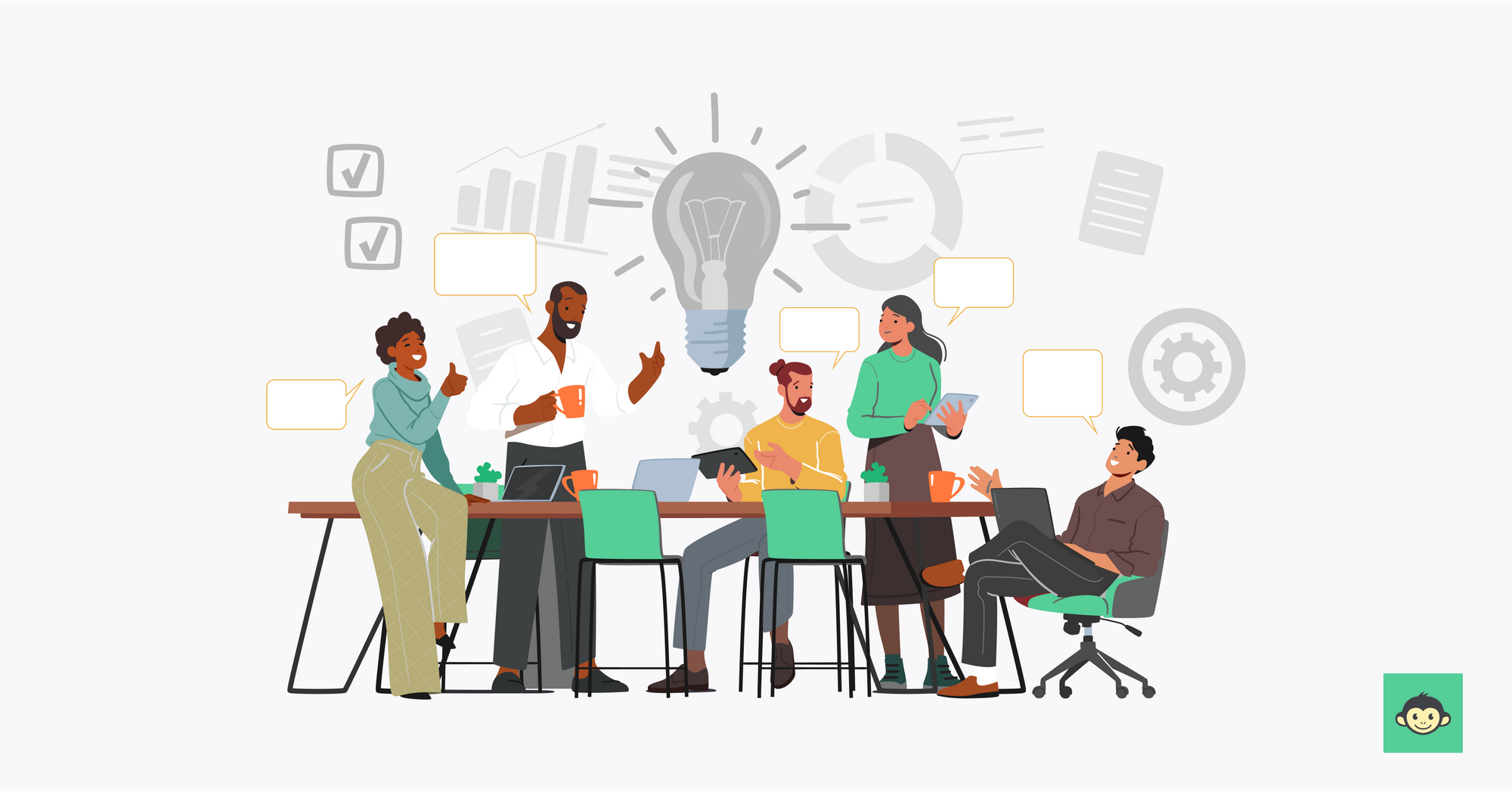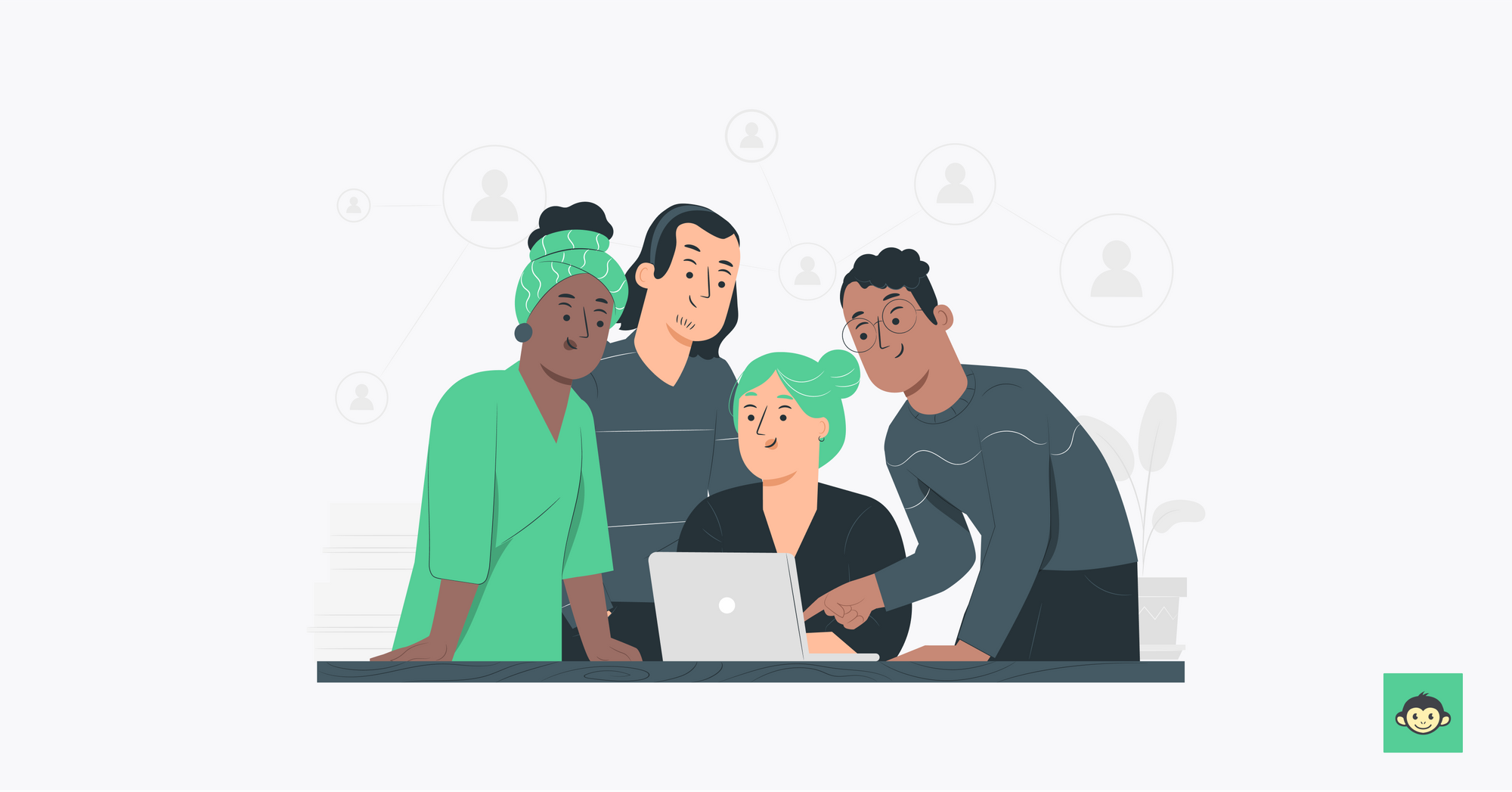What is workplace DEI trend: Top 15 trends that you should know in 2024

Let's delve into a crucial aspect of the modern workplace – Diversity, Equity, and Inclusion (DEI). In recent years, DEI has evolved from a workplace initiative to a core ethos, emphasizing the creation of environments where differences are not just acknowledged but celebrated. But why has DEI gained such prominence, and what does it entail for businesses in 2024?
Join me on this exploration as we unravel the roots of the DEI movement, understand the essence of a DEI culture, and dissect the driving factors behind its increasing importance.
As we delve into the nuances, we'll discover how DEI is not just a trend but a compass guiding workplaces toward a more equitable and enriching future. Let’s dive into the intricacies of how DEI works well for your company in 2024!
What is DEI in the workplace?

Diversity, Equity, and Inclusion (DEI) in the workplace constitute a comprehensive framework aimed at cultivating an environment where differences are not only acknowledged but embraced. "Diversity" encapsulates a recognition of the myriad of individual attributes, be it race, gender identity, age, ethnicity, or background, acknowledging that a rich blend of perspectives contributes to organizational vitality.
Moving beyond mere acknowledgment, "Equity" takes center stage, advocating for fairness and accountability by addressing the systemic inequalities and barriers. It seeks to ensure that everyone, regardless of their background or identity, has equal access to opportunities, resources, and advancement within the organization.
"Inclusion" forms the final pillar, shaping a cultural landscape where every voice is not only heard but valued. It's about creating a sense of belonging, where individuals feel empowered to contribute authentically, fostering an atmosphere of collaboration and mutual respect.
DEI is not a static concept; it's a dynamic strategy that evolves to meet the changing needs of the workforce. It goes beyond compliance, striving for a workplace where diversity is not only celebrated but leveraged as a catalyst for innovation and success.
As organizations increasingly recognize the strategic importance of a DEI strategy, fostering a culture that embodies these principles becomes not just a goal but a transformative journey towards a more vibrant and equitable workplace.
What is the DEI movement?

The DEI movement represents a collective and intentional effort to drive systemic change in how organizations approach and promote Diversity and, Equity, and Inclusion. It goes beyond a checklist of policies; it's a dynamic force propelling workplaces toward genuine transformation.
This movement advocates for a cultural shift, challenging ingrained biases and promoting an ethos where everyone, irrespective of their background, feels valued and included.
At its core, the DEI movement responds to the realization that diversity extends far beyond visible differences. It acknowledges the importance of diverse perspectives, experiences, and thought processes as catalysts for innovation and resilience in an ever-evolving business landscape.
This movement isn't a fleeting trend; it's a commitment to dismantling barriers and fostering a workplace culture that actively nurtures equality. By embracing the DEI movement, organizations acknowledge the imperative to evolve, adapt, and create spaces where every individual has the opportunity to thrive. It's not just a checkbox on an agenda; it's a profound redefinition of how workplaces operate and flourish.
Why has DEI become so popular in the workplace?
Let's unravel the reasons behind the soaring popularity of Diversity, Equity, and Inclusion (DEI) in our professional spaces. It's not just a trend; there's a compelling story that has propelled DEI into the forefront of workplace conversations.
Let's delve into the dynamics that make DEI more than just a workplace initiative—it's a game-changer.
Strategic imperative for innovation:
Organizations are recognizing that DEI is not just a moral obligation but a strategic necessity. DEI stands for diverse teams and a spectrum of perspectives, ideas, and approaches. This fosters innovation crucial for navigating the complexities of today's business landscape.
Business performance enhancement:
Studies consistently demonstrate that diverse and inclusive workplaces outperform their counterparts. Companies embracing DEI aren't just meeting societal expectations; they are strategically positioning themselves for improved performance, growth, and resilience.
Attracting top talent:
In the competitive talent landscape, job seekers increasingly prioritize workplaces that demonstrate a commitment to diversity and inclusion. Organizations that prioritize DEI not only attract diverse talent but also create an environment where individuals feel valued and can contribute meaningfully.
Retention and employee engagement:
DEI isn't only about recruitment; it's about creating an inclusive culture that retains and engages existing employees. A diverse and inclusive workplace fosters a sense of belonging, leading to higher job satisfaction, increased productivity, and reduced turnover.
Alignment with changing societal expectations:
As societal expectations evolve, businesses are under increasing scrutiny to reflect the diversity of the communities they serve. DEI is not just a response to external pressures; it's a proactive stance in creating workplaces that mirror the broader diversity of society.
Globalization and market dynamics:
In an interconnected world, businesses are operating on a global scale. DEI provides a competitive edge by fostering cultural competence and adaptability, allowing organizations to navigate diverse markets more effectively.
Legal and regulatory landscape:
Evolving legal frameworks and regulations emphasize the importance of DEI in the workplace. Organizations are increasingly recognizing the need not only to comply with these standards but also to proactively embed DEI principles into their core values and practices.
In essence, the popularity of DEI is multifaceted, intertwining strategic business considerations, organizational priorities, talent dynamics, and a moral commitment to creating workplaces that reflect the diverse tapestry of our society. It's not just a trend; it's a holistic approach to organizational success in the 21st century.
What is a DEI culture?

A Diversity, Equity, and Inclusion (DEI) culture is like the personality of a workplace. It's about making everyone feel welcome, respected, and valued.
Imagine it as a commitment, not just in policies but in how everyone in the workplace thinks and acts. It's about treating everyone fairly, without unconscious bias, acknowledging historical unfairness, and making sure everyone has a fair shot.
Beyond policies:
A DEI culture is more than just written rules. It's about embodying a mindset that values and respects everyone, creating an atmosphere where diversity is not just acknowledged but celebrated.
Commitment to equity:
It goes beyond offering equal opportunities. A DEI culture actively works to break down barriers that might be holding some individuals back, ensuring fairness for everyone.
Inclusion in action:
Inclusion isn't just a buzzword; it's the heartbeat of a DEI culture. It's about making sure every team member feels heard, appreciated, and an integral part of measuring success of the workplace community.
Catalyst for innovation:
A DEI culture isn't just about being nice—it's about fostering an environment where many diverse groups and perspectives come together. This mix becomes a breeding ground for fresh ideas, creativity, and innovation.
Resilient workplaces:
The inclusivity of a DEI culture makes workplaces stronger. It's not just about weathering challenges; it's about thriving through collaboration and understanding, creating a resilient and adaptable team.
Simple yet powerful:
DEI culture isn't rocket science. It's a simple commitment to making everyone feel welcome and respected. This simplicity, however, holds immense power in transforming how we work together.
So, as we dive into the depths of DEI culture, think of it as a combination of these elements. It's not just a workplace trend; it's a practical guide for creating a workplace where everyone has a fair chance to shine.
Importance of DEI in 2024

Diversity, equity and inclusion today stand as pillars of paramount importance to business leaders, shaping the very foundation of how many organizations operate and thrive.
Let's delve into the profound significance of DEI in this era, understanding why it's not just a trend but an indispensable element in navigating the complexities of the contemporary workplace.
In an age marked by global connectivity and diversity, businesses are realizing that DEI isn't merely a moral obligation but a strategic necessity. The world has become a mosaic of cultures, perspectives, and talents, and organizations that embrace this diversity find themselves better equipped to tackle the challenges and opportunities presented by a rapidly changing marketplace. Here are the top reasons why all organizations must consider DEI to be important.
Strategic imperative:
DEI is no longer a choice but a strategic necessity in 2024. Recognizing diversity as a driver of innovation and adaptability, organizations understand that it's integral to sustained success.
Business performance catalyst:
Numerous studies emphasize the positive correlation between diverse teams and leaders and enhanced business performance. DEI is not an auxiliary project; it serves as a catalyst for innovation, problem-solving, and overall financial success.
Social responsibility and reputation:
As societal expectations evolve, organizations actively fostering DEI programs aren't merely meeting the status quo; they are enhancing their reputations as socially responsible entities, attracting and retaining top talent.
Adaptability to cultural shifts:
DEI isn't static but a dynamic approach aligning businesses with the evolving values of a multigenerational workforce and customer base. It positions organizations to adapt to changing expectations and norms.
Innovation and talent magnet:
DEI isn't a checkbox; it's a magnet for top talent. In 2024, where the workforce seeks values alignment, organizations championing DEI attract diverse talent and become hubs for innovation and collaboration.
Future-proofing against uncertainties:
Committing to DEI becomes a form of organizational resilience. By fostering a culture that thrives on diverse perspectives, organizations position themselves to navigate and thrive amidst the unpredictable challenges of the future.
Ethical consumerism and market demand:
Consumer behavior is increasingly influenced by ethical considerations, and DEI plays a significant role in consumers' purchasing decisions. Companies that demonstrate a commitment to diversity and inclusion not only appeal to a wider audience but also align with the values of socially conscious consumers.
Risk mitigation and crisis management:
DEI initiatives serve as a proactive measure in mitigating risks associated with discrimination, harassment, and cultural insensitivity in the workplace. By fostering an inclusive environment where all employees feel respected and valued, organizations reduce the likelihood of costly legal battles, reputational damage, and internal conflicts.
In conclusion, the importance of DEI in 2024 is a tangible force shaping the strategic, cultural, and innovative aspects of the contemporary workplace. Organizations recognizing and leveraging this significance are poised not just for compliance but for a future where diversity, equity, and inclusion are integral to sustained success.
Top 15 workplace DEI trends to watch out for in 2024

From virtual inclusion initiatives to anti-racist organizational cultures, this compilation of DEI data encapsulates the pulse of what organizations should watch out for to foster an environment where every individual thrives. Join us on this exploration of the trends that will shape the DEI narrative in 2024 and beyond.
- Virtual inclusion initiatives: With remote work becoming the norm, organizations will focus on virtual DEI initiatives to ensure that every team member, regardless of location, feels included and connected.
- Algorithmic bias mitigation: As AI systems play a growing role in hiring and decision-making processes, organizations will prioritize strategies to identify and eliminate algorithmic biases, promoting fair and equitable practices.
- Intersectionality acknowledgment: DEI efforts will increasingly recognize and address the intersectionality of individuals, ensuring that diverse experiences stemming from various aspects of identity are acknowledged and supported.
- Mental health inclusivity: Organizations will integrate mental health support into their DEI strategies, recognizing the impact of a diverse and inclusive workplace on the overall well-being of employees.
- Cultural competency training: DEI training will expand to include a focus on cultural competency, fostering understanding and respect for diverse cultural backgrounds within the workplace.
- Enhanced accessibility measures: Employers will implement and prioritize accessibility measures, ensuring that workplaces and technologies are designed to accommodate individuals with diverse abilities.
- Supplier diversity programs: DEI efforts strengthen companies' commitment to supplier diversity, actively seeking and supporting businesses owned by underrepresented groups in their supply chains.
- Diverse leadership development: DEI initiatives will extend to leadership development programs, ensuring that individuals from diverse backgrounds have equal opportunities for advancement into leadership positions.
- Flexible work arrangements: Recognizing the importance of work-life balance, organizations will offer and promote flexible work arrangements, contributing to a more inclusive workplace for employees with diverse needs.
- Anti-racist organizational cultures: The focus will shift towards creating anti-racist organizational cultures, with initiatives aimed at dismantling systemic racism and promoting equality at all levels.
- Inclusive language policies: Organizations will adopt inclusive language policies, promoting communication that respects diverse identities and avoids language that may be exclusionary or perpetuate stereotypes.
- Global DEI strategies: Companies operating on a global scale will tailor their DEI strategies and DEI efforts to address cultural nuances and diversity challenges specific to each region, ensuring a cohesive yet adaptable approach.
- Employee resource groups (ERGs) evolution: ERGs will evolve beyond affinity groups to become influential platforms driving organizational change, with an increased focus on advocacy, mentorship, and impact on DEI policies.
- Virtual team-building initiatives: Organizations will invest in virtual team-building activities to foster camaraderie and collaboration among remote teams. These initiatives will aim to strengthen relationships, boost morale, and create a sense of belonging regardless of physical location.
- Data-driven DEI decision-making: By collecting and analyzing relevant data, businesses can identify areas for improvement, measure progress, and make informed decisions to drive meaningful change in their DEI efforts.
Top 10 DEI initiatives to try to improve workplace inclusivity

In a world that values diversity as a cornerstone of success, these initiatives serve as practical guides for organizations striving to have inclusion programs create environments where every voice is not just heard but celebrated.
Let's embark on a journey to explore actionable strategies that go beyond rhetoric, fostering workplaces that thrive on inclusivity and equality. Here are 10 DEI initiatives to improve workplace inclusivity:
- Empathy workshops: Develop workshops focusing on empathy to foster a deeper understanding of diverse perspectives, encouraging employees to step into each other's shoes.
- Fairness checkpoints: Introduce regular checkpoints to evaluate hiring, promotion, and compensation processes, ensuring fairness and addressing potential biases at every stage.
- Diverse talent scouting: Implement proactive talent scouting strategies to identify and attract diverse candidates, ensuring a broad representation through blind resume reviews and diverse interview panels.
- Unity circles: Form unity circles or affinity groups that provide safe spaces for open dialogue, mentorship, and advocacy, creating an environment where individuals from various demographics can connect.
- Personalized flexibility plans: Tailor flexibility plans to individual needs, acknowledging that a one-size-fits-all approach may not cater to the diverse requirements of every employee.
- Leadership inclusivity programs: Establish programs that actively seek out and nurture leadership potential in individuals from underrepresented groups, preparing them for various leadership roles within the organization.
- Allyship mentorship programs: Foster allyship through mentorship initiatives that pair employees from diverse backgrounds with mentors, promoting professional growth and equitable career advancement.
- Global cultural exchange sessions: Expand cultural competency training to include global perspectives, facilitating exchange sessions where employees can share and learn about diverse backgrounds and experiences.
- Holistic well-being packages: Enhance benefits packages to address not only healthcare needs but also holistic well-being, incorporating family support and mental health resources that cater to diverse employee requirements.
- Inclusive pulse surveys: Establish regular pulse surveys as feedback mechanisms, providing employees a transparent platform to voice concerns, share experiences, and actively contribute to ongoing DEI initiatives.
In pursuing workplace inclusivity, the journey doesn't end here; it's a continuous evolution. The top 10 DEI Initiatives outlined are seeds of change sown to cultivate a culture where diversity is embraced, equity is a standard, and inclusion is a shared responsibility.
As organizations implement and adapt every dei initiative, they pave the way for a future where workplaces are not just diverse but truly reflective of the richness of the human experience.
Diversity hiring trends
- Inclusive job descriptions: Organizations are reevaluating their job descriptions to ensure they are inclusive and appeal to a diverse pool of candidates. This involves using gender-neutral language, avoiding biased terminology, and clearly stating the company's commitment to diversity and inclusion. For example, companies may use tools such as Textio to analyze and optimize job descriptions for inclusivity.
- Diverse candidate sourcing: Companies are expanding their candidate sourcing strategies to reach a more diverse pool of talent. This includes leveraging diverse job boards, attending diversity-focused career fairs, and partnering with organizations that support underrepresented groups in the workforce. For instance, companies may collaborate with diversity professionals' associations or participate in recruiting events targeted toward specific demographic groups.
- Blind recruitment processes: To mitigate unconscious bias in hiring, organizations are implementing blind recruitment processes where identifying information such as name, gender, and ethnicity is anonymized during the initial stages of the hiring process. This allows hiring managers to focus solely on the qualifications and skills of candidates. For example, companies may use blind resume screening software or conduct blind auditions for certain roles to ensure fairness and objectivity in the selection process.
- Diversity training for hiring teams: Organizations are providing diversity training for hiring managers and interviewers to increase awareness of unconscious bias and promote inclusive hiring practices. This training may include workshops on cultural competence, stereotype avoidance, and mitigating bias in decision-making. For example, companies may offer online modules or facilitated sessions led by diversity and inclusion experts to educate hiring teams on best practices for diversity hiring.
- Diverse interview panels: Companies are assembling diverse interview panels to conduct candidate assessments and evaluations. This ensures that multiple perspectives are considered in the hiring process and helps mitigate bias. For example, organizations may include representatives from different backgrounds, genders, and levels of seniority on interview panels to provide a more holistic assessment of candidates' fit with the company culture and values.
- Diversity metrics and reporting: To track progress and hold themselves accountable, organizations are establishing diversity metrics and reporting mechanisms related to hiring practices. This involves collecting data on the demographics of applicants, interviewees and hires to identify areas for improvement and measure the effectiveness of diversity initiatives. For example, companies may set targets for increasing the representation of underrepresented groups in their workforce more than half and regularly report on their progress toward these goals.
These diversity trends in hiring reflect a growing recognition of the importance of diversity and inclusion in the recruitment process.
By adopting inclusive job descriptions, sourcing strategies, blind recruitment processes, diversity training for hiring teams, diverse interview panels, and diversity metrics and reporting, organizations can attract, select, and retain a more diverse and talented workforce.
Conclusion
The imperative for Diversity, Equity, and Inclusion (DEI) has never been more pronounced. As we conclude our exploration of the Top 10 DEI Initiatives to
Improve Workplace Inclusivity, it's evident that these strategies are not mere checkboxes—they are transformative agents, shaping cultures where diversity is celebrated, diversity efforts made, inclusion efforts made, equity is standard, and inclusion is non-negotiable.
The journey toward workplace inclusivity requires continuous commitment and action from senior leaders. By embracing a DEI initiative, organizations meet the expectations of a diverse workforce and pave the way for a future where every individual feels valued, heard, and empowered.
As you embark on your own DEI journey, consider leveraging Culture Monkey—a powerful platform designed to guide organizations in cultivating a culture of true inclusion and belonging.
FAQs
1. Is diversity and inclusion a trend?
Diversity and inclusion in the workplace are not merely trends but essential components of successful organizations. Embracing diversity fosters innovation, creativity, and a broader range of perspectives. Inclusive workplaces promote equality, respect, and belonging for all employees, leading to higher morale and productivity. While there may be trends in how diversity and inclusion are approached, their significance transcends fads.
2. How gender, race and ethnicity impact success in the workplace
Gender, racial and ethnic diversity significantly impact success in the workplace due to systemic biases and discrimination. Women and minority groups often face barriers to advancement, and lack of representation in leadership roles. These biases limit opportunities for career growth and contribute to disparities in employment outcomes. Overcoming these challenges requires proactive measures to promote diversity, equity, and inclusion.
3. How has the COVID-19 pandemic impacted DEI initiatives?
The COVID-19 pandemic has both highlighted and complicated diversity, equity, and inclusion (DEI) initiatives. Remote work has increased access for some marginalized groups but exacerbated disparities for others, such as those lacking reliable internet access. Virtual formats have enabled broader participation in DEI training but have also made it harder to address interpersonal issues and build inclusive workplace cultures.



